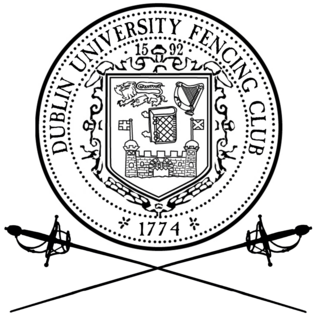
Trinity College, officially the College of the Holy and Undivided Trinity of Queen Elizabeth near Dublin, is the sole constituent college of the University of Dublin, a research university located in Dublin, Ireland. The college was founded in 1592 by Queen Elizabeth I as "the mother of a university" that was modeled after the collegiate universities of Oxford and Cambridge, but unlike these affiliated institutions, only one college was ever established; as such, the designations "Trinity College" and "University of Dublin" are usually synonymous for practical purposes. The college is legally incorporated by "the Provost, Fellows, Foundation Scholars and other members of the Board," as outlined by its founding charter. It is one of the seven ancient universities of Britain and Ireland, as well as Ireland's oldest surviving university. Trinity College is widely considered the most prestigious university in Ireland, and one of the most elite academic institutions in Europe. The college is particularly acclaimed in the fields of Law, Literature and Humanities. In accordance with the formula of ad eundem gradum, a form of recognition that exists among the University of Oxford, the University of Cambridge and the University of Dublin, a graduate of Oxford, Cambridge, or Dublin can be conferred with the equivalent degree at either of the other two universities without further examination. Trinity College, Dublin is a sister college to St John's College, Cambridge and Oriel College, Oxford.
The Regius Professorships of Divinity are amongst the oldest professorships at the University of Oxford and the University of Cambridge. A third chair existed for a period at Trinity College, Dublin.
The Regius Professorship of Physic is a Regius Professorship in Medicine at the University of Dublin, Trinity College. The seat dates from at least 1637, placing it amongst the oldest academic posts at the university. Mention is made in the college's Register for 1598 of an annual grant of £40 from the government for a "Physitian's pay"; this is sometimes held to be the provision made for the Chair of Physic, but it is possible that it may have been in granted for medical services required by the troops stationed in Dublin.
Roy H. W. Johnston was an Irish physicist and political activist. He was a Marxist who as a member of the IRA in the 1960s argued for a National Liberation Strategy to unite the Catholic and Protestant working classes. He wrote extensively for such newspapers as The United Irishman and The Irish Times.

The Laurentian Society is a society of Trinity College Dublin, named after Saint Laurence O'Toole, and concerned with relevant issues from a Catholic perspective. It was the Catholic society of Trinity College, and it existed with no interruptions between the academic years 1952–53 and 2001–02. During those years, the society held talks on various issues and was engaged in charitable activities. The society played an important role in opposing the ban on Catholics entering Trinity College, and was also very influential on other groups of the college, such as the G.A.A. club of Trinity. The work of this society was quoted across the Atlantic. In September 2011, the Society was revived, being granted provisional recognition by the Trinity College Central Societies Committee. The Society was granted full recognition on 19 March 2013 at the Annual General Meeting of the same Societies Committee. Since then it has steadily grown in size and has an active membership.
John J. Hearne was an Irish legal scholar and diplomat whose role in the drafting of the 1937 Constitution of Ireland was so important that he was referred to as "Ireland's Thomas Jefferson".
The Most Rev. Anthony Martin, DD, MA was an Anglican priest in Ireland during the first half of the 17th-century.
Henry Pakenham was Dean of St Patrick's Cathedral, Dublin from 1843 until his death.

Dublin University Fencing Club (DUFC) is the fencing club of the University of Dublin, Trinity College, located in Dublin, Ireland. The club caters for foil, épée and sabre. Its members are students, alumni and staff from Trinity College with a small amount of visiting fencers from other clubs.
Dublin University Rifle Club (DURC) is the rifle club of the University of Dublin, Trinity College, located in Dublin, Ireland. The club competes in a number of Olympic shooting disciplines including air rifle and small bore. It is the Universities third oldest sports club, and its members include students, alumni and staff from Trinity College.
Theophilus Brocas, D.D. (1705-1770) was an Anglican priest in Ireland during the Eighteenth century.
Henry Cottingham was an Anglican priest in Ireland during the 17th century.
Theophilus Harrison, DD was an Anglican priest in Ireland during the late 17th and early 18th centuries.
John Charles Wolfe was an Irish Anglican priest.
Joseph Calwell was a nineteenth century Irish Anglican priest.
Horatio Townsend Newman was a nineteenth century Anglican priest.
James Forward Bond (1785–1829) was an Irish Anglican priest in the first half of the 19th-century.
John Halahan was a long serving Irish Anglican priest: most notably Dean of Ross from 1905 to 1919.
Anthony Cope was a Seventeenth-century Irish Anglican priest.
Peter Mahon was an Irish Anglican priest in the late 17th and early 18th centuries.
This page is based on this
Wikipedia article Text is available under the
CC BY-SA 4.0 license; additional terms may apply.
Images, videos and audio are available under their respective licenses.


